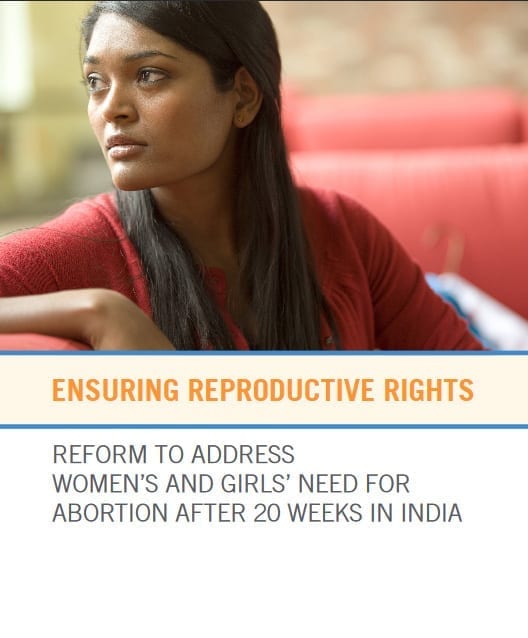Filipino Women and Men Sue Manila Mayor For Ban on Contraception
Suit Follows Release of Human Rights Groups’ Study Finding Ban has Triggered Reproductive Health Crisis
MANILA – Twenty Manila women and men filed a case today in a Philippine high court against the mayor of Manila, arguing that the city’s eight-year ban on contraception has severely and irreparably damaged their lives and health and the majority of women in Manila City.
“This ban is yet another abhorrent example of a larger global trend lead by religiously motivated policymakers who adopt policies based on ideology instead of the health and well-being of the very people they are elected to serve,” said Melissa Upreti, senior legal advisor for Asia at the Center for Reproductive Rights. “If elected officials fail to do their duty and meet their human rights obligations, we will ask the courts to do it for them.”
Relying heavily on the study Imposing Misery conducted by the U.S.-based Center for Reproductive Rights and Philippines-based Likhaan and ReproCen, the plaintiffs paint a grim portrait of women’s lives in Manila under Mayoral Executive Order 003 (EO 003), which effectively bans among other things condoms, birth control pills, and sterilization in public health centers. The plaintiffs’ stories show how the order endangers women’s health, exposes them to violence, and further drives already struggling families into dire poverty. All of the plaintiffs have personally undergone or witnessed:
Families driven to extreme poverty due to unintended pregnancies. One of the plaintiffs who makes between three and six dollars a day, was able to take birth control pills before the ban went into effect but has since had six children.
Women’s health being jeopardized because of their inability to control their fertility. After her fourth child, one woman was advised not to have any more children due to a rheumatic heart condition. When she requested a sterilization procedure, however, she was refused despite the medical risk. She has since had four more children, endangering her health with each pregnancy and delivery.
Many women have practically been forced to abstain from having sex with their partners in order to avoid pregnancy. But those refusals have strained relationships, lead to heated altercations, marriage separations and even sexual violence.
Affording basic necessities, such as food, has become an enormous challenge. One plaintiff says that she must choose between contraceptives and feeding her family and naturally, her family’s subsistence wins out.
“This is an extreme violation of human rights with alarming consequences for both families and the larger community,” said Aya Fujimura-Fanselow, legal advisor for international litigation and advocacy at the Center for Reproductive Rights. “For nearly a decade, the government has entered the homes of women in Manila and wreaked havoc-preventing them from deciding not only if and when to have children, but impacting their economic situation, health status and even the quality of their personal relationships.”
The women and men of Manila are asking the Court of Appeals to immediately revoke Executive Order 003, which was issued in 2000 and instructs city officials to “uphold natural family planning… [and] discourage the use of artificial methods of contraception like condoms, pills, intrauterine devices and other [methods].” While on its face, the order promotes natural family planning, in practice, the policy actually has been applied to prohibit the dispensing of “artificial” family planning services in all city hospitals and health centers. Given that 70% of Manila residents live below the poverty line, women cannot get contraceptives at public health facilities, they are effectively unavailable to them.
The plaintiffs argue that the ban not only violates the Philippine Constitution, but also violates several international treaties the Philippines has ratified, most significantly the United Nation’s Convention on the Elimination of All forms of Discrimination Against Women (CEDAW). CEDAW requires governments guarantee women the right to decide freely and responsibly on the number and spacing of their children, and the means to enable them to exercise that right. The Philippines ratified this treaty without reservation in 1981.
“Imposing Misery” included the testimonies of more than 67 individuals affected by or tasked to implement the policy: ordinary women, public and private health providers, national and local government officials and NGO members. It also studied the numerous local and international laws that the policy may have violated.
Plaintiffs include twenty petitioners and are represented by attorneys Elizabeth Aguiling-Pangalangan, Raul Pangalangan, Harry L. Roque Jr, Florin T. Hilbay, and Diane A. Desierto. Melissa Upreti and Aya Fujimura-Fanselow from the Center for Reproductive Rights are serving as legal advisors on the case.


